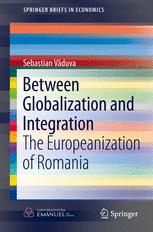

Most ebook files are in PDF format, so you can easily read them using various software such as Foxit Reader or directly on the Google Chrome browser.
Some ebook files are released by publishers in other formats such as .awz, .mobi, .epub, .fb2, etc. You may need to install specific software to read these formats on mobile/PC, such as Calibre.
Please read the tutorial at this link: https://ebookbell.com/faq
We offer FREE conversion to the popular formats you request; however, this may take some time. Therefore, right after payment, please email us, and we will try to provide the service as quickly as possible.
For some exceptional file formats or broken links (if any), please refrain from opening any disputes. Instead, email us first, and we will try to assist within a maximum of 6 hours.
EbookBell Team

0.0
0 reviewsThis volume focuses on the integration and globalization of Romania, a prominent emerging market in South-Eastern Europe and one of the major players in the securitization of the Black Sea and the Eastern European border, as both a part of NATO since 2004 and a fully integrated EU Member State since 2007. It will examine the challenges the country has faced in its progression from totalitarianism to democracy through several waves of reform intended to update and streamline its political and economic processes for success in the free-market capitalist arena. Having learned the hard way about some of the key aspects of public administration, Romania has learned a place for itself among the diverse global players of Europe and beyond.
The first section reviews current perspectives on globalization and its impact in the late 20th century. It has “flattened” the Earth, generating better communication and exchanges than ever before, but also gathering a fair amount of criticisms from commentators seeing it as little else than neo-colonialism. Cooperative-administrative strategies are being suggested instead, in order for new public administration patterns to smoothly run in coordination with the globalized world.
In the second section, the European Union is described as a complex multi-level socio-political entity, itself historically in turmoil over its own style of rule – e.g. hierarchy vs. coordination, integration vs. centralization, etc. – or even its own existence, as the European dream seemed to be losing steam with the general population of Europe several times in the previous century. Powers and responsibilities of the European institutions and agencies are also discussed.
Thirdly, the recent history of Romania is approached from the Europeanization context, starting from its post-1989 days of confusion and of attempting to jumpstart democracy. Eventually, it has to undergo a series of reforms and internalize some principles fundamental to the EU in order for the much-awaited accession to occur and its multiple effects to start taking place.
A country with a rich cultural heritage and straddling multiple socio-political axes, Romania has plenty more to offer in the new geostrategic, security and development contexts of the 21st-century Europe. As such, this volume provides inspiration for further research and practical application opportunities on topics of local, European and global significance.